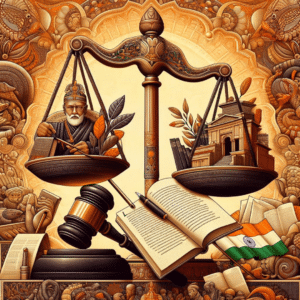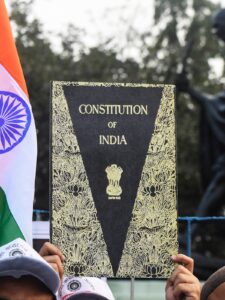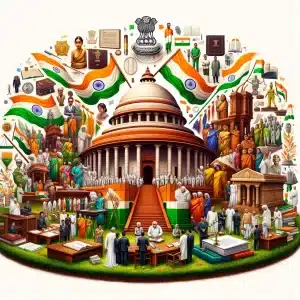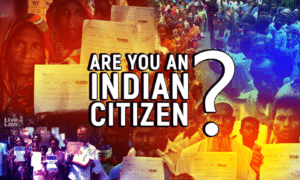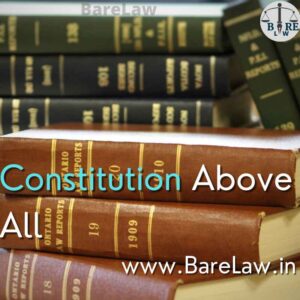Simplifying Your Life & Law | Legal Drafting services
INTRODUCTION
Section 2(a) of the Legal Aid Act, 2000 states that Legal Aid implies giving legal guidance, paying attorneys expenses and cost of litigation including giving some other help to the individuals who experience financial insolvency, dejection, are defenseless, or can’t get to justice due to different financial conditions. The idea of “legal aid” indicates wide importance and incorporates directing an installment of legal counselor’s charges, and another coincidental expense for costs of the litigation.
Legal aid tries to give justice to the individuals who do not have the money to connect with themselves in the court’s use. However, it means to give fairness to all it frequently fails in its targets in view of certain monetary imperatives.
Regardless of committed advocacy by legal counselors who regularly dedicate their professions to serving the requirements of low-pay individuals, programs are altogether under-resourced and frequently compelled to focus on serving the most impeded customers on a set number of issues influencing their most squeezing legal necessities. All things considered, it is assessed that generally 50% of the qualified individuals that demand help from legal aid programs must be dismissed. The individuals who are served regularly get brief exhortation and restricted administrations. Those dismissed should depend upon self-improvement assets and the arrangement of legal data, however, even these assets are not accessible to all who need them.
RELEVANT PROVISIONS
- CONSTITUTION OF INDIA
The preamble of the Indian constitution fundamentally plans to get to individuals of India justice – economic and political. Justice P.N. Bhagwati suitably expressed that legal aid implies giving a plan to the general public which makes the machinery of the organization of Justice effectively open and in reach of the individuals who need to fall back on it for the requirement of rights given to them by law. Article 38(1) affirms that the State will advance the government assistance of individuals by getting and securing the social request including justice.
Articles 14 and 22(1) additionally make it compulsory for the State to guarantee uniformity under the watchful eye of the law and a legal framework that advances justice on a premise of equivalent freedom to all. Legal aid endeavors to guarantee that the established promise is satisfied in its letter and soul and equivalent justice is made accessible to poor people, oppressed and more vulnerable segments of society.
Article 21 evidently says that each individual has an equivalent right to life and freedom besides as indicated by the strategy set up by the law. The State will get that the activity of the legal framework advances justice, on a premise of equivalent freedom, and will, specifically, give free legal aid, by appropriate enactment or plans or in some other manner, to guarantee that chances for getting justice are not denied to any resident by reason of financial or different inabilities.
- CODE OF CIVIL PROCEDURE, 1908
There are provisions of legal aid in the Civil Procedure Code, 1908.
Order 33 Rule 17 of civil procedure code 1908 lays down the suits filed by the Indigent person. The fee has to be paid for the institution of the suits in court. But there are innumerable persons living in poverty who cannot afford to pay the court fee & to enable them to file suits and also exemption from court fee is provided under Order 33 of CPC.
Rule 17 of CPC provides defense by the indigent person. Any defendant who is an indigent person, who desires to plead a set-off or counterclaim, may be allowed to do so & the rules contained in this Order shall apply to him as if he were a plaintiff and his written statement were a plaint. The state ensures a place for an indigent person so that he should not be denied justice on footings of financial disabilities.
Rule 9 A of the Civil Procedure Code, 1908 – This rule of the Order XXXIII of the CPC states that the court has the power to assign a pleader to an indigent person and exempt such person from paying the court fee as well.
CODE OF CRIMINAL PROCEDURE, 1973
The arrangement of legal aid can be followed in Criminal law as well. Legal aid can be given in a wide range of criminal cases in India. Section 304 of the Code of Criminal Procedure, 1973 states that when in a preliminary under the steady gaze of the Court of Session, the charged can’t draw in a pleader to shield and if the Court feels that the denounced isn’t in a condition to connect with a leader, then, at that point it is the obligation of the Court to relegate an advocate or a pleader for the safeguard of blamed and the costs will be borne out by the State.
LEGAL AID AUTHORITIES
- National Legal Services Authority (NALSA)
NALSA is an apex frame body consists of the Chief Justice of India as the Patron-in-Chief and a retired Judge of Supreme Court because the Executive Chairman, who’s nominated by the President. NALSA formulates policies and concepts as well as frames effective reasonable schemes to make criminal offerings beneath the act easily to be had. It also organizes legal aid camps, encourages human beings to settle disputes in Lok Adalat, undertake and promote research in criminal services, and also conducts periodic opinions of legal resource applications. It promotes prison literacy and sets up legal aid clinics in various law colleges and universities and additionally promotes the schooling of paralegals. Also, NALSA supervises the activities of State Legal Service Authorities and additionally encourages non-governmental organizations to implement legal useful resource schemes.
- State Legal Services Authorities
The Legal Services Authority Act makes it mandatory for every state authority to have a State Legal Services Authority which includes Chief Justice of High Court as Patron-in-Chief and a serving or a retired decide of the High Court as the government chairman, who is nominated through the Governor of the State. The State Legal Services Authority implements the regulations, policies, and strategies laid down by NALSA. This authority is the apex frame that supervises the sports of the legal offerings taking region within the state. It also conducts Lok Adalats and various prison resource programs.
- District Legal Services Authorities
The Legal Services Act makes it obligatory for every state to constitute a District Legal Services Authority in each district inside the respective state as a way to include the District Judge as a chairman. This authority performs the features and regulations laid down by means of the State Legal Services Authority. And it also supervises the acts of the Taluka Legal Services Committee and different felony services taking around inside the District and organizes Lok Adalats.
RELEVANT CASE LAWS
Hussainara Khatoon v. Home Secretary, State of Bihar
This case exposed the poor circumstance of the justice shipping system inside the country of Bihar. There were such a lot of undertrials that were forced into jails and there had been accused that were forcefully convicted and suffered greater punishment than they deserved. The most effective motive in the back of a majority of these delays turned into the incapacity of the convicted man or woman to hire an advocate to guard them. It becomes held with the aid of Justice P.N. Bhagwati that the right to free legal aid is an important part of the ‘reasonable, honest and just” manner for a person who is accused of any offense and that is guaranteed by means of Article 39A and implicit in Article 21.
State of Haryana v. Darshana Devi
In this situation, Hon’ble Justice Krishna Iyer held that no poor ought to be deprived of justice simply because of the court fee and refusal to use the exemption provisions of Order XXXIII, Civil Procedure Code, and prolonged its provisions to Accident Claims Tribunals.
Khatri v. State of Bihar
In this case, Hon’ble Justice P.N. Bhagwati made it obligatory for the Session Judges to tell the accused of their rights to unfastened criminal resources and if this kind of person is unable to lease a propose to defend due to poverty or indigence.
Suk Das v. Union Territory of Arunachal Pradesh
This became one of the landmark judgments given with the aid of Justice P.N. Bhagwati. He said that India has a huge wide variety of illiterate humans due to which they’re now not aware of their rights. Hence, it’s far important to sell criminal literacy and criminal focus to a few of the humans and it’s miles a crucial component of felony resource as well.
CONCLUSION
The free legal useful resource is a vital proper granted via Constitution as many human beings in India settle for injustice due to the fact they cannot have the funds for an advocate to shield them. It is because of lack of awareness, lack of support through the advocates, legal professionals, and so forth. The right of free legal aid may be utilized by the weaker section of society best after they become aware of their rights. The government should take initiative to encourage advocates with the aid of providing economic and non-monetary advantages with a purpose to earn their living by presenting free services to the weaker segment of society.
You may also like to read:
-
05 Jul 2021 OpinionMaratha Reservation: From Legislature of Precedent
-
16 Aug 2021 Know Your LawThe preamble to the Constitution of India
-
06 Aug 2021 Case BriefsCase Brief of Justice K.S.Puttaswamy (Retired). V. Union of India and Ors, 2017 (Right to Privacy - A Grandstand View)
-
24 Aug 2021 Know Your LawOther authorities under article "12" of Constitution of India
-
19 Aug 2021 Know Your LawCitizenship laws in India
-
12 Sep 2021 Know Your LawConstitution above all

